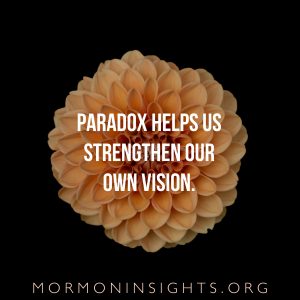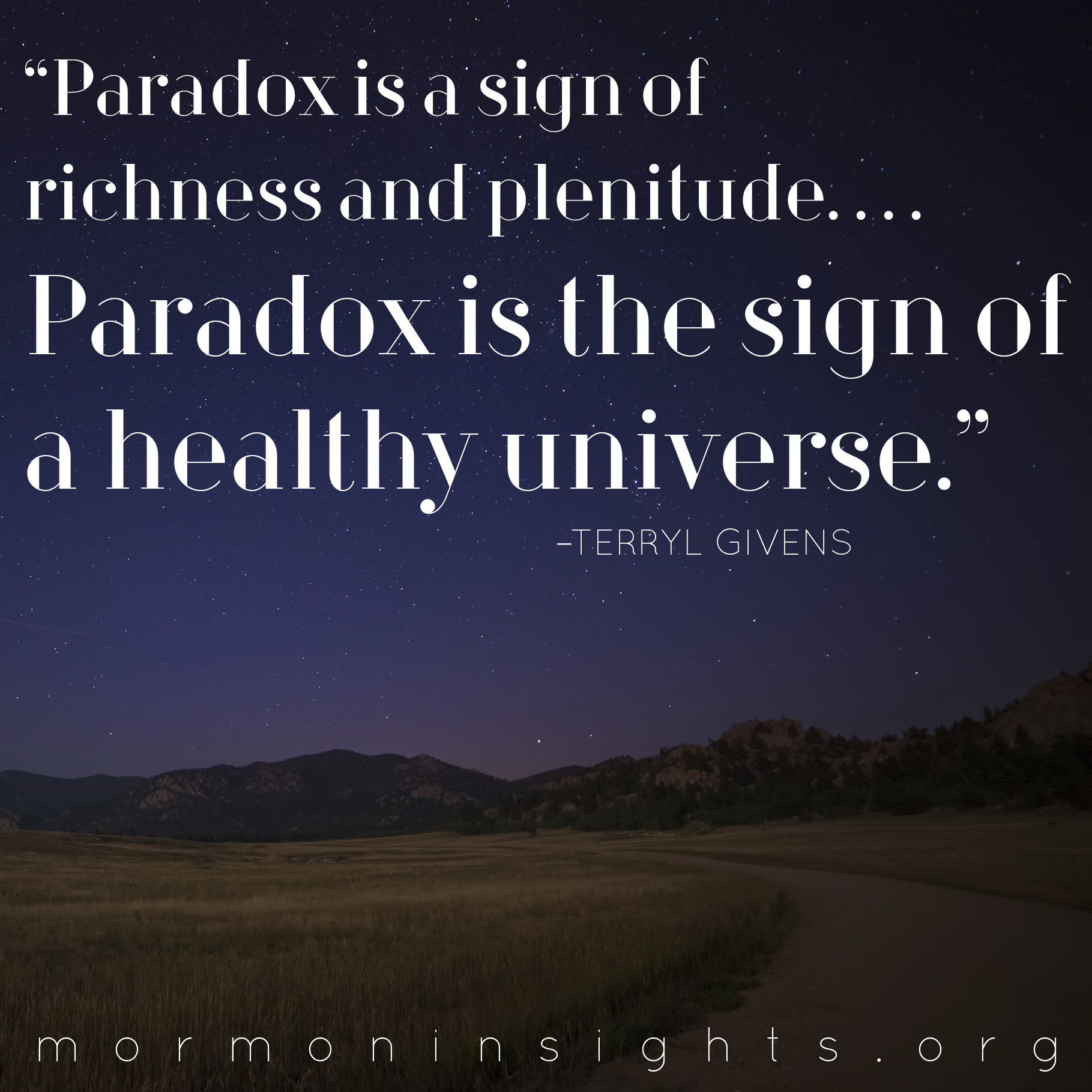When it comes to your faith, don’t shy away from paradox—embrace it.
A honeybee is a dangerous creature. It can effectively poison its predators by stinging them, but not without losing its own life. Why does such a creature exist? Why did the process of natural selection not continue to refine the bee, producing a creature that could sting without killing itself? Why did evolution stop short of making it as perfect as possible?
Charles Darwin answered these questions this way: natural selection makes things only as perfect as they need to be to stay on top of the competition. Natural selection does not produce absolute perfection. When the competition ends, so does the progress.
In “Paradox and Discipleship,” an article published in BYU’s Religious Educator, Professor Terryl L. Givens uses the example of the honeybee to demonstrate the necessity of paradox. Faith is constantly faced with obstacles that seem to create paradoxes. In these circumstances we may feel that we need to choose one side or the other of an issue. However, just as the bee stops progressing when deprived of competition, our faith may weaken if we remove paradox from our belief.
Givens points out five apparent paradoxes central to the belief system of any Latter-day Saint:
- “Freedom and Authority.” How do we balance the principles that we are wholly accountable for ourselves, yet at the same time we ought to be subject to the authority and revelation of ecclesiastical leaders?x
- “Exile and Election.” From the moment Joseph Smith was told that he must join none of the churches “for they were all wrong,” Latter-day Saints have defined themselves as distinct from the existing religious world. Yet at the same time we “long for inclusion” in Christendom, as Givens says, and in the world at large.

- “The Sacred and the Banal.” How do we maintain the appropriate sense of worship and “sacred distance” when we believe that God is an exalted man, that we ourselves may become like God, and that prophets walk among us and work in office buildings?
- “Certainty and Searching.” We uphold the twin values of unshakable knowledge of spiritual matters on the one hand, and the courage and passion to search for unknowns, as Joseph Smith himself did, on the other hand. This perhaps is the paradox we treat most unevenly, favoring certainty over its counterpart.
- “Originality and Assimilation.” We treasure the knowledge that with Joseph Smith, a flood of revelation was again opened upon the earth. However, we are still encouraged to incorporate into our beliefs “every thing which inviteth and enticeth to do good” (Moroni 7:13), regardless of whether its source is prophetic.
We all have likely encountered a paradox that required us to make a choice for or against an idea or gospel principle. But as Givens reminds us, paradox helps us strengthen our own vision, even our testimonies.
Read Terryl Givens’s complete article, “Paradox and Discipleship.”
Source: The Religious Educator
—Alison Brimley, Mormon Insights
Find more insights
Read Professor Robert L. Millet discuss paradox #2, or what it really means to call ourselves members of “the only true Church.”
Watch or read Elder D. Todd Christofferson speak on the paradox of agency versus obedience.




“Faith is constantly faced with obstacles.” I really appreciate this insight. Trials truly allow us to progress. As soon as we accept this, life becomes much simpler; trials shouldn’t be a surprise or a faith-diminishing experience.
I love this article! I love that it teaches that it’s okay to question the doctrine of the church because it can increase our faith. I think that a lot of Latter-day Saints have the misunderstanding that we aren’t supposed to question anything and that we are supposed to accept everything just because we are told to. It’s important for us to receive our own answers about the gospel and receive our own confirmation, not just blindly accept everything we are told. We need to know for ourselves.
This article is so important! God is not a god of extremes, and jumping to one side of a paradox or the other can be perilous to our faith when we discover conflict. Though difficult, we should learn to embrace paradox and realize that 2 truths/principles are not mutually exclusive.
I love this article. The gospel is full of seemingly contradictory principles, but on further study, they make more sense. We should see these paradoxes as opportunities to study and learn how they fit together in the eternal plan.